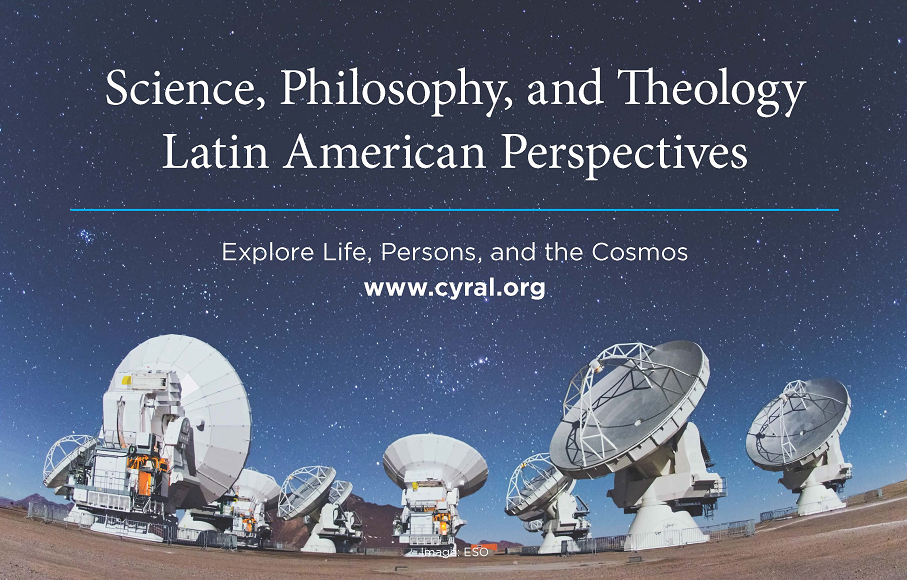Event occurs in September at PUC-Chile, in Santiago
 André Neiva and Felipe Miguel, doctoral students at the Graduate Program in Philosophy at PUCRS, are among the 25 young researchers who were invited to the event Science, Philosophy and Theology in Latin America. Promoted by the Ian Ramsey Center in Science and Religion of the University of Oxford and sponsored by the John Templeton Foundation, the project is intended to foster research in these areas, and will feature three workshops and a conference. In 2017, the event will occur at PUC-Chile, in Santiago, from Sep 20-22 – the final congress will occur from Sep 25-27. Neiva and Miguel were awarded with a stipend in the amount of USD 1,300.00 to cover traveling costs and will have all their expenses covered during the event.
André Neiva and Felipe Miguel, doctoral students at the Graduate Program in Philosophy at PUCRS, are among the 25 young researchers who were invited to the event Science, Philosophy and Theology in Latin America. Promoted by the Ian Ramsey Center in Science and Religion of the University of Oxford and sponsored by the John Templeton Foundation, the project is intended to foster research in these areas, and will feature three workshops and a conference. In 2017, the event will occur at PUC-Chile, in Santiago, from Sep 20-22 – the final congress will occur from Sep 25-27. Neiva and Miguel were awarded with a stipend in the amount of USD 1,300.00 to cover traveling costs and will have all their expenses covered during the event.
Geared towards Latin America, the project was conceived to have three editions, having previously occurred in Ecuador (Galapagos Islands), in 2015, and in Brazil (Salvador), in 2016. In its last edition, it will promote discussion sessions on cosmology, physics, cognitive science, philosophy of mind, philosophy of religion and theology. The criteria used to select scholars to present papers at the event include academic commitment, quality of the abstract, letter of recommendation, plans for publication of the article and future academic goals.
André Neiva develops research in the area of formal epistemology, philosophy of probability, decision theory and philosophy of religion, and employs formal methods. In Chile, he will be presenting an examination of the so-called “fine adjustment”, which corroborates with the existence of God. “This theory’s advocates claim that the fundamental constants of our Universe are finely adjusted for the existence of life. If they were not so accurate, probably there wouldn’t be intelligent life. Hence, they believe it is highly unlikely that this adjustment have happened by chance”, explains he. “Refutations to this claim is widely available in the literature. I’m going to investigate one of such refutations”, promises he.
Because he studies probability theories, it was easy for Neiva to connect the argument to his research. Besides, he goes on to say that discussions on the existence of God have always been fascinating to him. “The discussion on the rationality of the belief in God is such an important issue in philosophy and epistemology”, ascertains he. For his doctoral dissertation, he is working on an accuracy-based approach (or precision) for comparative probabilities.
On the other hand, Felipe Miguel studies analytical epistemology, analytical philosophy of religion and philosophy of cognitive science. His dissertation discusses epistemic defeasibility and the epistemic implications of cognitive science, the same topic he studied from Aug 2016 to Mar 2017, at the University of Notre Dame, USA. In America, he did a doctoral internship as he had won a grant from the event that was sponsored by University of Oxford. “I had joined the second edition of the project, in Salvador, as I had presented a preliminary version of my research. I was awarded the grant and one of the conditions was that I had to join the event’s final conference in Chile”, says he.
Miguel will be presenting two papers in Chile. One of such papers discusses how natural beauty can be considered evidence to the existence of God and will be delivered as a workshop addressing The Place of People in the Cosmos. For the second paper, which will be presented at the Oxford/Templeton final conference, he will be presenting the findings of his investigation during the internship at Notre Dame.
The students go on to highlight the importance of being in contact with other scholars from Latin America sharing experiences and learning from one another. “This is another opportunity to meet other students and professors who are mutually interested in finding answers to the major questions of life and reality”, states Miguel. For Neiva, being awarded a grant such as this, in addition to being a highlight to his curriculum, is a major recognition of his work. “Networking is also important because it is very good to see the results of our work being valued in the academia”, concludes he.